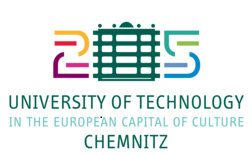Teachers' Experiences in Managing Pupils with Disabilities in Tanzania Inclusive Primary Schools: Challenges and Coping Strategies
DOI:
https://doi.org/10.71514/jssal/2025.181Keywords:
Teachers, pupils with disabilities, inclusive education, challenges, coping strategiesAbstract
This study assessed teachers' experiences in managing pupils with disabilities in inclusive primary schools in Muleba District in Tanzania. Specifically, the study assessed challenges faced by teachers in managing pupils with disabilities and strategies to overcome them. The study employed a qualitative approach with a case study design. Data were collected through interviews and observation and analysed through thematic analysis. A purposive non-probability sampling technique selected three schools from three wards. Ten participants appeared in each selected school. The findings revealed that most teachers faced challenges in managing pupils with disabilities in inclusive primary schools. These challenges were pupils’ isolation that caused teachers to face difficulty in teaching them, drop out, insufficient professional teachers, shortage of teaching and learning materials, and poor infrastructure. Educating teachers and society at large on inclusive education and improvisation of teaching aids were adopted by the teachers to manage pupils with disabilities in the schools. It was recommended that the government provide professional development to teachers on inclusive education. Moreover, in collaboration with the school management and education stakeholders, the government has to promote inclusive education practices and create inclusive learning environments for pupils with disabilities in primary schools.
Downloads
References
Ahrbeck, B., & Felder, M. (2020). Analysis of barriers to inclusive schools in Germany: Why special education is necessary and not evil. Education Sciences, 10(12), 358. https://doi.org/10.3390/educsci10120358
Armstrong, M., Morris, C., Abraham, C., Ukoumunne, O., & Tarrant, M. (2016). Children’s contact with people with disabilities and their attitudes towards disability: A cross-sectional study. Disability and Rehabilitation, 38 (9), 879-888. https://doi.org/10.3109/09638288.2015.1074727
Anastasiou, D., Felder, M., Correia, L. A. D. M., Shemanov, A., Zweers, I., & Ahrbeck, B. (2020). The impact of article 24 of the CRPD on special and inclusive education in Germany, Portugal, the Russian Federation, and the Netherlands. In on educational inclusion (pp. 216-248): Routledge.
Asamoah, E., Hau-lin Tam, C., & Abdullah, A. (2022). Implementation of inclusive education policy in Ghana: Recommendations from social workers and policy makers. International Journal of Disability, Development and Education, 69(1), 267-281. https://doi.org/10.1080/1034912X.2021.1955335
Barnes, C., & Mercer, G. (2010). Exploring disability: A sociological introduction (2nd ed.). Polity Press.
Bhalalusesa, E. P. (2023). Parents’ and Teachers’ engagement in preparing children with special educational needs for readiness to school in selected inclusive schools in Tanzania (Doctoral dissertation, The Open University of Tanzania). http://repository.out.ac.tz/id/eprint/3953
Bhatt, T. (2021). Portraying the Providence of Inclusive Education: A Review. EFFLATOUNIA-Multidisciplinary Journal, 5(2), 2573-2578.
Braun, A. M. (2022). Barriers to inclusive education in Tanzania’s policy environment: national policy actors’ perspectives. Compare: A Journal of Comparative and International Education, 52(1), 110-128. https://doi.org/10.1080/03057925.2020.1745057
Braun, V., & Clarke, V. (2006). Using thematic analysis in psychology. Qualitative Research in Psychology, 3(2), 77–101. https://doi.org/10.1191/1478088706qp063oa
Cho, S., & Park, J. (2024). Inclusive education in Japan and its role in international cooperation: analysis of a project for children with disabilities in Mongolia. Asia Pacific Education Review, 25(1), 229-242. https://doi.org/10.1007/s12564-023-09923-4
Clarke, V., & Braun, V. (2017). Thematic analysis. Journal of Positive Psychology, 12(3), 297–298. https://doi.org/10.1080/17439760.2016.1262613
Elder, B. C., & Kuja, B. (2019). Going to school for the first time: Inclusion committee members
increasing the number of students with disabilities in primary schools in Kenya. International Journal of Inclusive Education, 23(3), 261-279. https://doi.org/10.1080/13603116.2018.1432082
Ganner, M., Voithofer, C., & Welti, F. (2021). The implementation of the UN Convention on the Rights of Persons with Disabilities in Austria and Germany (Vol.12). Innsbruck University Press. https://doi.org/10.15203/99106-037-6
Groce, N.E., & Trani, J.F. (2009). Millennium Development Goals and people with disabilities. The Lancet, 374(9704), 1800–1801. https://www.ncbi.nlm.nih.gov/pmc/articles/PMC2722543
Hayes, A. M., & Bulat, J. (2017). Disabilities inclusive education systems and policies guide for low- and middle-income countries (RTI Press Publication No. OP-0043-1707). RTI Press. https://doi.org/10.3768/rtipress.2017.op.0043.1707
Islam, A. K. M. (2021). Mainstreaming education of the pupils with disability in Bangladesh. (Master dissertation, Dhaka University). http://repository.library.du.ac.bd:8080/xmlui/xmlui/handle/123456789/1655
Jacobs, L. (2018). The universality of the human condition: Theorizing transportation inequality claims by person with disabilities in Canada, 1976-2016. Can. J. Hum. Rts., 7, 35.
Kachweka, A., & Rupia, C. (2022). Examining visual impairment challenges on special needs pupils academic achievement in Bukoba District, Tanzania. J Adv Educ Philos, 6(7), 388-399. 10.36348/jaep.2022.v06i07.006
Kimaro, A. R., & Kileo, S. E. (2023). Factors contributing to low academic achievement among pupils with hearing impairment: A case of selected inclusive primary schools in Dodoma Municipality, Tanzania. Journal of Adult Education in Tanzania, 25(1), 17-40. https://doi.org/10.61408/jaet2023v25i01.02
Kirby, M. (2017). Implicit assumptions in special education policy: Promoting full inclusion for students with learning disabilities. Child & Youth Care Forum, 46(2), 175–191. https://doi.org/10.1007/s10566-016-9382-x
Lee, C. L. (2023). Inclusive education policy discourses in Germany and the United States: A comparative approach to schools and society (Doctoral dissertation, Universität zu Köln). https://doi.org/10.46743/2160-3715/2021.5008
Makuya, D. (2021). Exploring the Challenges that are Faced by Teachers in the Implementation of Inclusive Education at Grade 9 Level in Johannesburg North District Schools in South Africa (Master dissertation, University of Johannesburg, South Africa).
Mapunda, P. H., Omollo, A. D., & Bali, T. A. (2017). Challenges in identifying and serving students with special needs in Dodoma, Tanzania. International Journal of Child Care and Education Policy, 11(10), 1-16. DOI 10.1186/s40723-017-0036-8
Mazuruse, G., Nyagadza, B., & Makoni, T. (2021). Inclusive education implementation challenges facing selected primary and secondary schools in Mashonaland East Province in Zimbabwe. International Journal of Educational Development in Africa, 6(1), 21 pages.
Mbunda, G. (2017). Assessing the implementation of inclusive education in Tanzania’s primary schools: A case of Mbinga District in Ruvuma Region (Doctoral dissertation, Mzumbe University).
Mkama, I. (2021). An In-depth exploration of the first phase of inclusive deaf education in Tanzania (Doctoral thesis, University of the Witwatersrand, Johannesburg).
Msekawanthu, J. (2023). Implantation of the National Inclusive Education Strategy, a case of selected mainstream secondary schools in Northern Education Division, Malawi. (Doctoral dissertation, Mzuzu University). http://repository.mzuni.ac.mw/handle/123456789/481
Nyimbi, I., & Kajiru, I. (2024). Education for Persons with Disabilities in Tanzania: Assessment of Policy and Legal Framework Efficiency. In N. C. Umeh (Ed.) Inclusive Education Developments in Africa (pp. 117-145): Springer, Cham. https://doi.org/10.1007/978-3-031-64549-5_7Nyoni, K. Z. (2022). Teacher’s attitude towards inclusive education in Tanzanian primary schools: A case of Iringa District. East African Journal of Education and Social Sciences, 3(6), 8-14. https://doi.org/10.46606/eajess2022v03i06.0232.
Odongo, G. (2018). Barriers to parental/family participation in the education of a child with disabilities in Kenya. International journal of special education, 33(1), 21-33.
Okine, S. (2021). Non-Governmental organisations' impact on educational policy in rural Ghana (Doctoral dissertation, Walden University, Ghana). ProQuest Dissertation.
Oliver, M. (1990). The politics of disablement. Macmillan. https://doi.org/10.1007/978-1-349-20895-1
Possi, M. K., & Milinga, J. R. (2017). Special and inclusive education in Tanzania: Reminiscing the past, building the future. Educational Process: International Journal, 6(4), 55-73. http://dx.doi.org/10.22521/edupij.2017.64.4
Qu, X. (2024). Making sense of policy development of inclusive education for pupils with disabilities in China. International Journal of Chinese Education, 13(1), 2212585X241234332. https://doi.org/10.1177/2212585X241234332
Robinson, K. H., Smith, E., & Davies, C. (2019). Responsibilities, tensions and ways forward: parents’ perspectives on pupils' sexuality education. In J. Ullman & T. Ferfolja (Ed.),
Gender and sexuality in education and health (1st ed, pp. 99-113): Routledge.https://doi.org/10.4324/9781351028028
Shongwe, Z. B. (2021). A narrative inquiry of the journey and educational experiences of deaf learners and their teachers at a high school for the deaf in Swaziland. (Doctoral dissertation, University of the Witwatersrand, Johannesburg, South Africa).
UNICEF (2021a). Seen, Counted, Included: Using data to shed light on the well-being of children with disabilities. Retrieved from https://www.unicef.org/reports/children-with-disabilities-report-2021
UNICEF Eastern and Southern Africa (2021b). Children with Disabilities in Eastern and Southern Africa: A Statistical Overview of Their Well-being. https://data.unicef.org/resources/children-with-disabilities-in-eastern-and-southern-africa
UNICEF Tanzania (2021c). Children and Young People with Disabilities in Tanzania: A Situation Analysis 2021. Retrieved from https://www.unicef.org/tanzania/reports/children-and-young-people-disabilities-tanzania
UNICEF. (2021d). Education: United Republic of Tanzania. https://www.unicef.org/tanzania/education
UN-CRPD. (2006). Convention on the Rights of Persons with Disabilities and Optional Protocal. United Nations, Department of Economic and Social Affairs
United Republic of Tanzania. (2021). National strategy for inclusive education. Dodoma: Ministry of Education, Science and Technology.
United Republic of Tanzania (2025). Education sector development plan 2025/26–2029/30.
Xie, Z., Deng, M., & Zhu, Z. (2024). From regular education teachers to special educators: The
role transformation of resource room teachers in Chinese inclusive education schools. International journal of inclusive education, 28(6), 857-874. https://doi.org/10.1080/13603116.2021.1968516
Yada, A., Tolvanen, A., & Savolainen, H. (2018). Teachers' attitudes and self-efficacy on implementing inclusive education in Japan and Finland: A comparative study using multi-group structural equation modelling. Teaching and Teacher Education, 75, 343-355. https://doi.org/10.1016/j.tate.2018.07.011
Downloads
Published
How to Cite
Issue
Section
License
Copyright (c) 2025 Lilian Samwel, Alphoncina Pembe, January Basela

This work is licensed under a Creative Commons Attribution-NonCommercial 4.0 International License.
The work is made available under the terms of the Public Offer and the Creative Commons Attribution 4.0 International License (CC BY 4.0). This license allows anyone to reproduce, distribute, and adapt the material in any medium or format, including for commercial purposes, provided that proper credit is given to the creator(s) and the original source.












